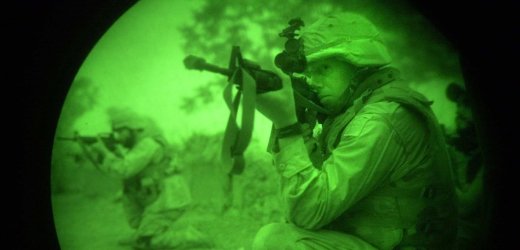
From Matthias Gebauer, der Speigel: The international troops in Afghanistan this year, under the command of the United States, have massively stepped up the hunt for top Taliban by special forces. The units, which operate secretly and are kept apart from the normal troops, have conducted hundreds of operations in recent months in an intensity not seen before in an effort to breakdown the Taliban’s resistance, weaken its leadership ranks and to eliminate networks of bomb planters.
Insiders have long known about the increased deployment of the special forces, but for the first time in the history of the nine-year war in Afghanistan, concrete figures about the deployments — which neither NATO nor the US military speaks about publicly — have been named. During the second week of August, leaders of the NATO troops under ISAF Commander David Petraeus were given a classified briefing on the massive anti-Taliban offensive, which began at the end of 2009, and progress that has been made.
SPIEGEL ONLINE has learned from reliable sources that the four-star general and his staff informed diplomats and top military officials that in the past three months alone, at least 365 high-ranking and mid-level insurgent commanders have been killed — mostly through targeted operations by the special forces, comprised of heavily armed elite soldiers from all branches of the US military. In addition, 1,395 people, including many Taliban foot soldiers, have been arrested.
The briefing on the latest progress in the war, which covered the period between May 8 and August 8, provides a rare glimpse into an aspect of the Afghanistan war that up until know has only been known by the US government and a few top politicians from other NATO member states. The military officials reported that the commanders and those arrested had been "taken out of the game. …"
There are differences of opinion over the success of the special forces’ offensive. High-ranking US officers and NATO commanders are cautiously stating that they have had their first successes in limiting the freedom of movement of the Taliban leadership ranks. But it is still too early to draw any qualitative conclusions, an intelligence officer on Petreaus’ staff said. (photo: AP)
Image: ap%208%2029%2010%20Special%20Forces%20campaign.jpg
